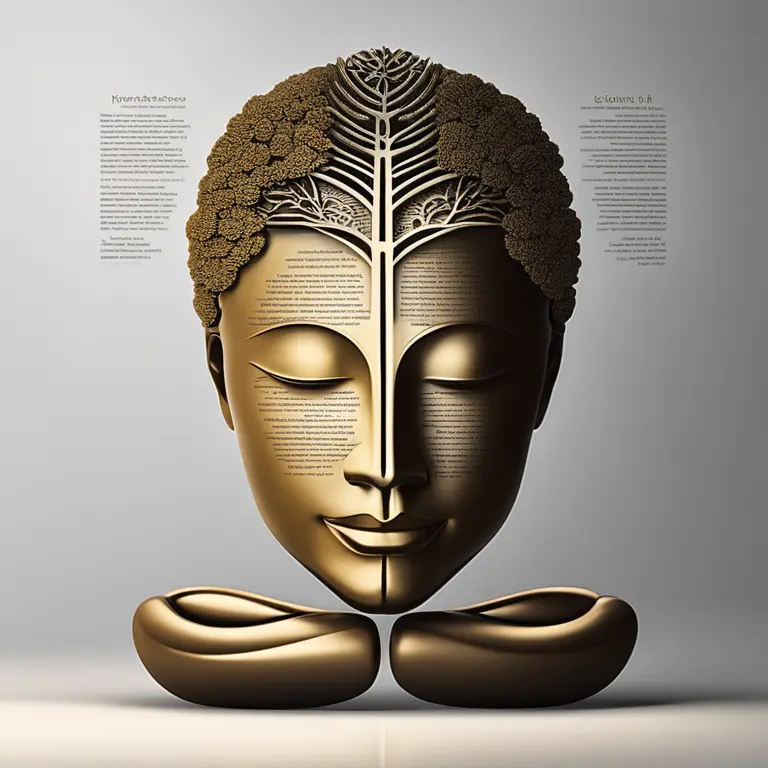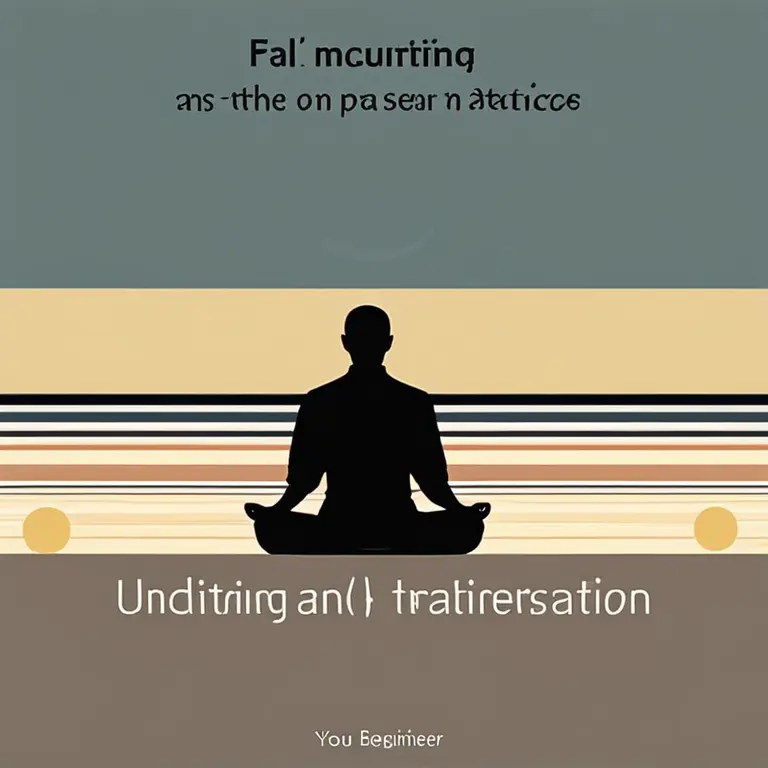
Unlocking A Beginner's Guide to Mindful Meditation
Discover a beginner-friendly approach to the calming practice of mindful meditation, fostering peace and clarity in everyday life.
article by Hina Kurosawa
Embracing Mindfulness
Meditation, often seen as a cornerstone of spiritual practices, has surged in popularity as a pragmatic tool for enhancing mental health and overall well-being. Mindfulness meditation, a subset of meditation focused on the present moment, is particularly beneficial for beginners seeking tranquility in today's fast-paced world. It involves the practice of maintaining a moment-by-moment awareness of our thoughts, feelings, bodily sensations, and surrounding environment. Embarking on this journey requires no special equipment, just a few minutes of your day, and an open mind.

Starting Your Practice
To begin, designate a quiet and comfortable space where distractions are limited. You don't need to sit cross-legged on the floor unless it's comfortable — a chair will work just fine. Start with short sessions, about five minutes long, and gradually increase the duration as you become more accustomed to the practice. The objective is to create a habit, making meditation an integral part of your daily routine, much like brushing your teeth.

Finding Focus
In mindful meditation, your breath will be your anchor — the focal point to return to when distractions arise. Close your eyes and draw deep, steady breaths, noting the sensation of air flowing in and leaving your body. Your mind will inevitably wander; it's the nature of the human brain. When this happens, gently acknowledge the thoughts or distractions and return your focus to your breath without judgment.

Nurturing Patience
Patience is an intrinsic part of meditation practice. Many beginners express frustration when they 'fail' to clear their minds. However, the goal of mindfulness is not to empty your thoughts but to notice them without getting entangled. As you practice, you'll cultivate a kinder, more patient relationship with your own mind, learning to observe thoughts like clouds passing through the sky of your awareness.

Beyond the Cushion
One of the beautiful aspects of mindfulness is that it can extend far beyond your meditation sessions. You can practice mindfulness during daily activities such as eating, walking, or even while engaging in chores. Attuning your attention to sense and experience without judgment enriches each moment, infusing daily life with greater awareness and presence.
Benefits and Support
Mindfulness meditation offers numerous benefits. Studies suggest it reduces stress, improves focus, decreases emotional reactivity, and enhances cognitive flexibility. The digital age offers a wealth of resources to support your practice, from meditation apps and online communities to virtual courses. Remember, there's no one 'right' way to meditate; the best practice is one that you will do consistently and that feels personally enriching.
Continuous Learning and Growth
As you delve deeper into your mindfulness practice, you may wish to explore further through books, courses, or retreats. Mindfulness is not just a practice but a journey of growth. Over time, it cultivates an inner stillness that can profoundly change how you experience life. Stay open to the lessons it offers, and revel in the clarity and peace that come with regular practice.
Published: 1/18/2024
Modified: 1/18/2024
More predictions
Come back here soon to learn more about yourself and your future


Can Meditation Manage Depression?
Discover how meditation can contribute to managing depression, its potential benefits, and the connection between mindfulness and mental health.


Best Meditation Techniques for Brain Health
Discover effective meditation practices to enhance cognitive functions and maintain a healthy brain.


The Origins of Meditation: Tracing Its Historical Roots
Discover the historical origins of meditation, its transformation through time, and its profound impact on various cultures around the world in this insightful article.